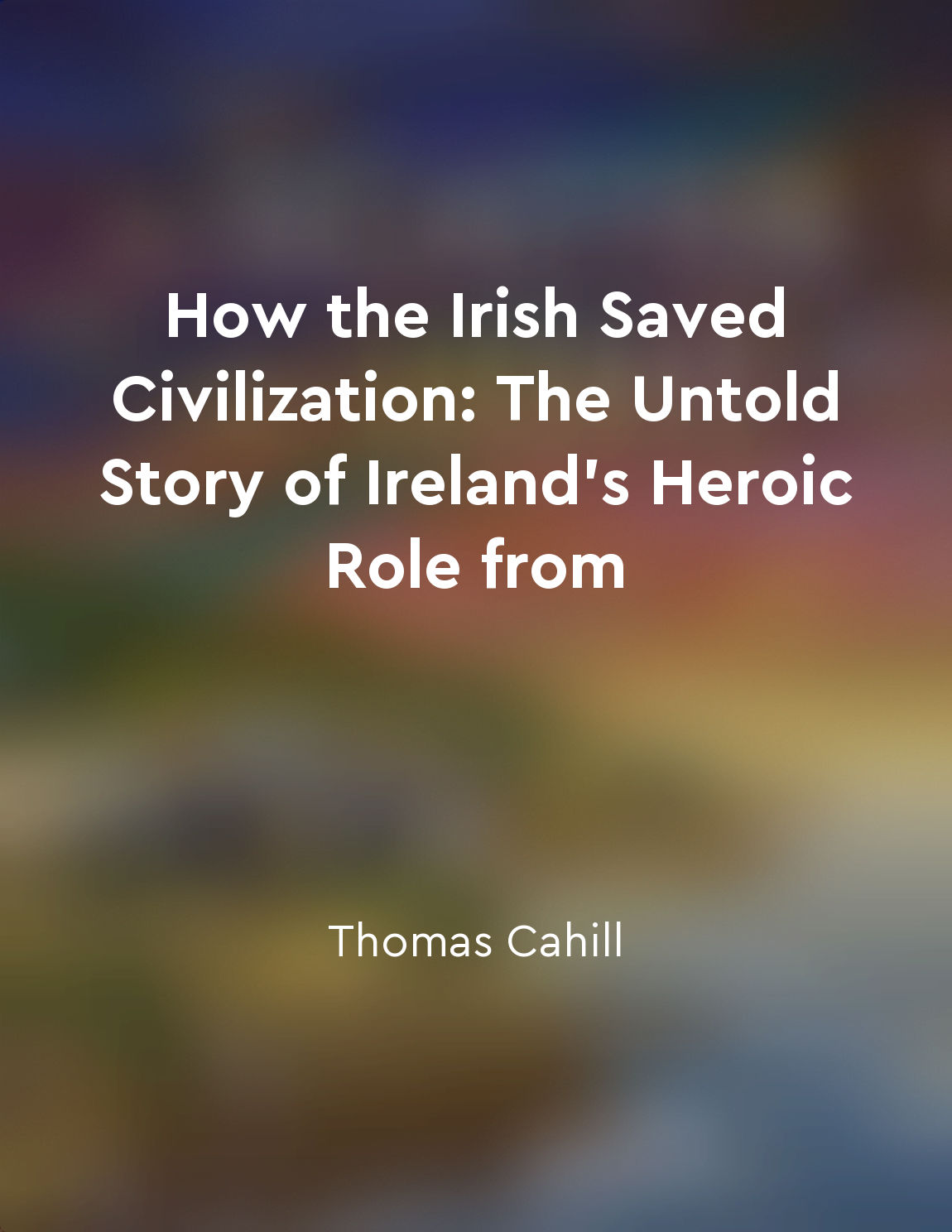Influence of Irish monasticism on English libraries from "summary" of How The Irish Saved Civilization by Thomas Cahill
The Irish monks, with their insatiable thirst for knowledge and commitment to learning, played a crucial role in preserving and transmitting texts that would have otherwise been lost to history. As they settled in England, they brought with them a wealth of knowledge from their homeland, where they had established a tradition of scholarship and intellectual inquiry. These monks, who were often the only literate individuals in their communities, took it upon themselves to copy and preserve important texts, creating a network of libraries that would serve as centers of learning for centuries to come. Through their dedication to scholarship, the Irish monks not only preserved texts from antiquity but also produced new works that would contribute to the intellectual life of medieval Europe. Their libraries became repositories of knowledge, containing works on a wide range of subjects, from theology and philosophy to science and literature. These texts would go on to influence the develop...Similar Posts
Treat every customer with respect and kindness
In the world of sales, it is essential to remember that every customer is a human being with feelings and emotions. By treating...

The Irish monks preserved and copied ancient texts during the Dark Ages
In the midst of the Dark Ages, when much of Europe was plunged into chaos and ignorance, a group of monks in Ireland took it up...

The Irish monks laid the foundation for the Renaissance in Europe
In the early Middle Ages, when the Roman Empire was crumbling and Europe was descending into chaos, the Irish monks emerged as ...
Role of Irish monks in preserving ancient texts
The Irish monks, living in remote monasteries scattered across the windswept coast of Ireland, played a crucial role in preserv...
Unexpected connections between characters
The intricate web of relationships that bind the characters in this tale is a testament to the unpredictable nature of human co...
